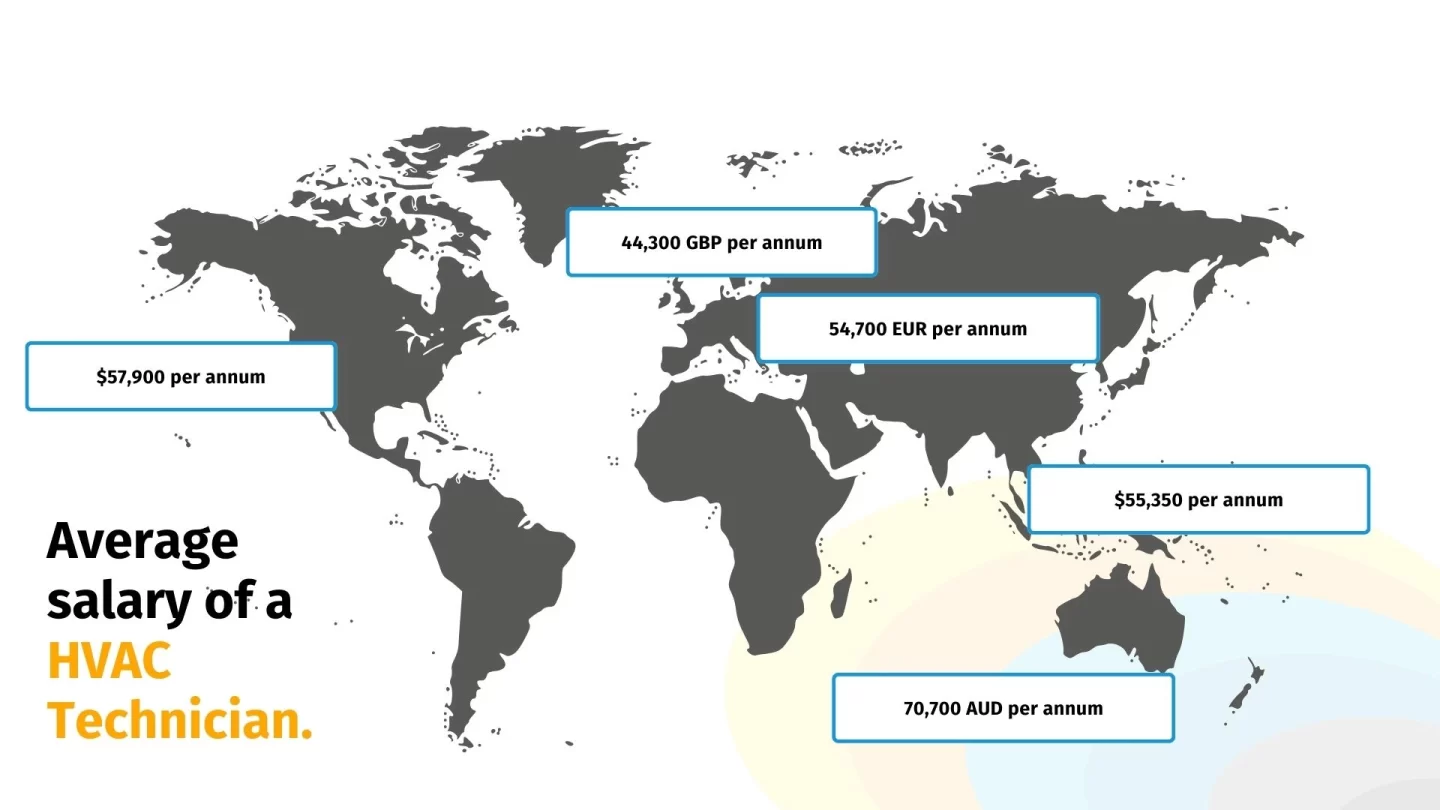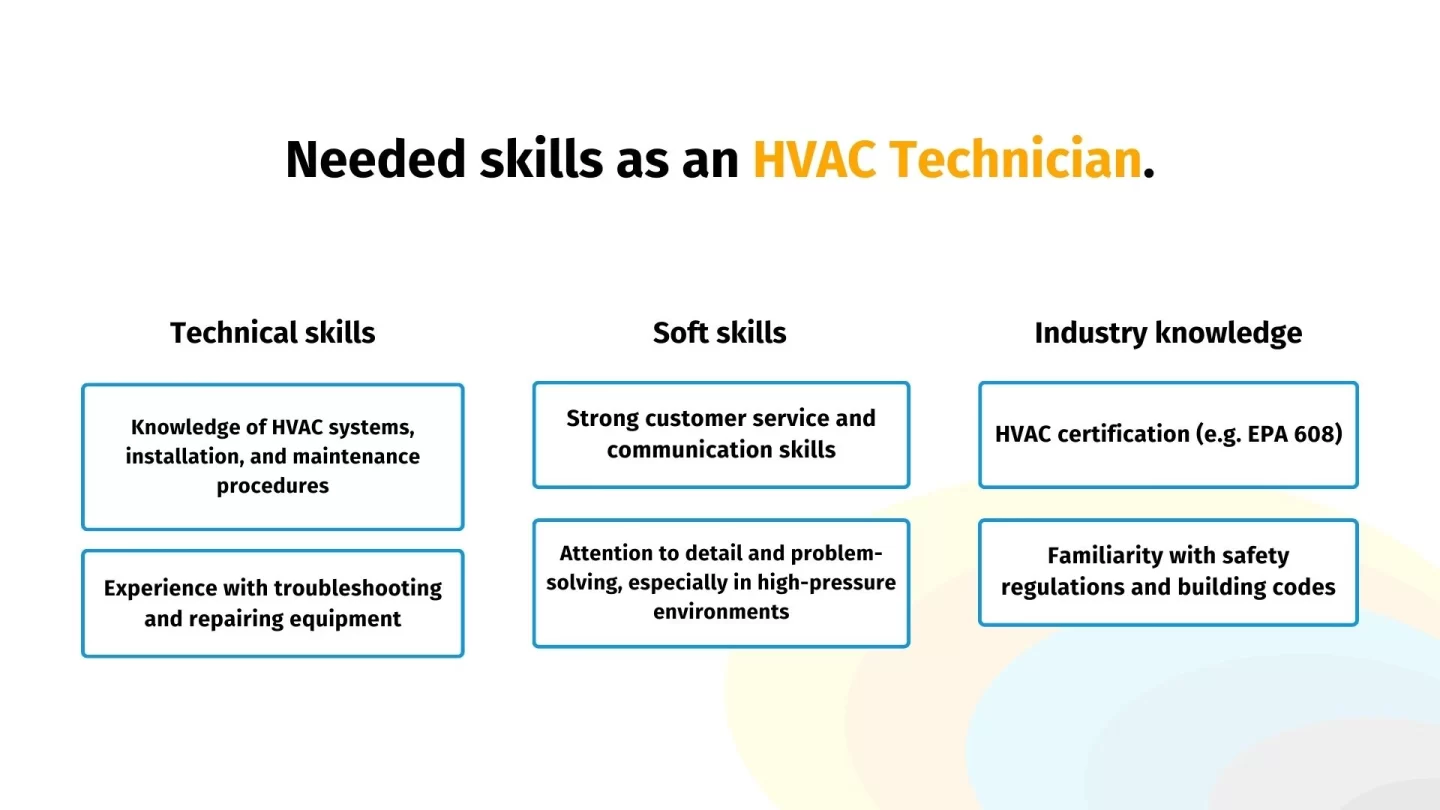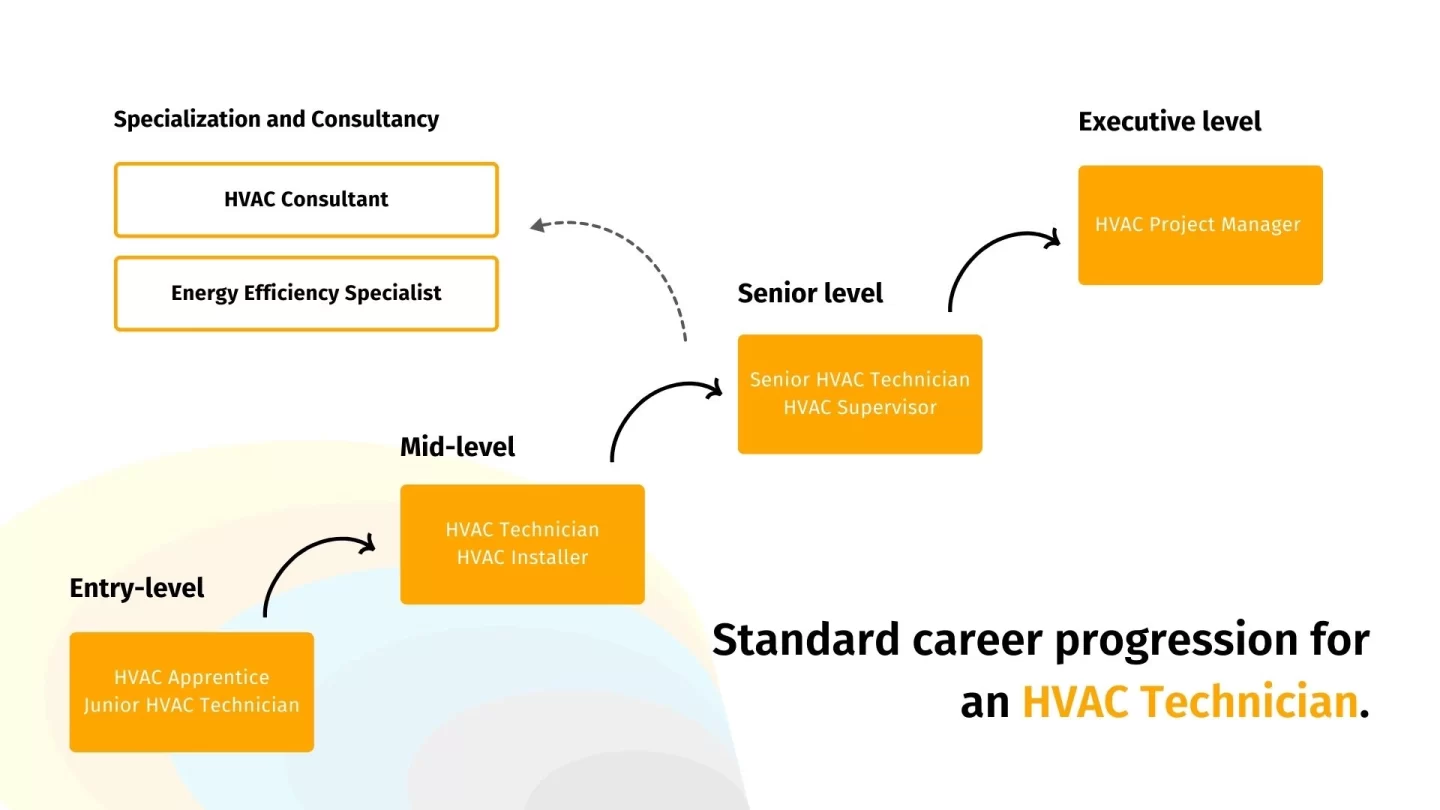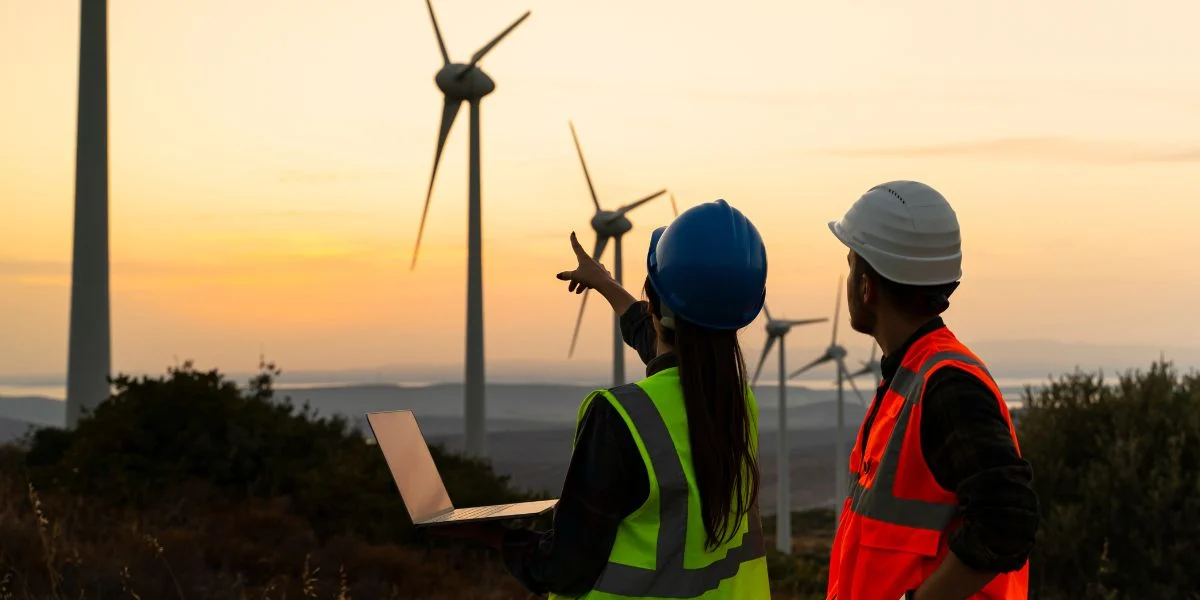If you enjoy working hands-on with cutting-edge technology and solving complex mechanical problems, this role offers many opportunities. HVAC technicians play an important role in ensuring energy efficiency and maintaining climate control systems in industrial, commercial, or residential environments.
Estimated reading time: 7 minutes
What is an HVAC technician?
An HVAC technician (Heating, Ventilation, and Air Conditioning) is a trained professional responsible for installing, maintaining, and repairing heating and cooling systems. These technicians ensure optimal climate control in various settings, from residential homes to large-scale industrial facilities. Their expertise ensures that systems run smoothly and efficiently, providing both comfort and safety for all occupants.
What does an HVAC technician at an energy company do?
At energy companies, HVAC technicians are essential for maintaining the systems that regulate temperatures in power plants, refineries, and industrial facilities. They ensure that these systems are running efficiently, reducing energy waste and operational costs. Specific tasks may include:
- Installing, inspecting, and maintaining HVAC systems in industrial and commercial environments
- Troubleshooting and repairing malfunctioning components, such as motors, thermostats, and fans
- Ensuring compliance with energy efficiency standards and safety regulations
- Assisting in the development of energy-efficient climate control systems for large-scale infrastructure projects
Their role in the energy industry often involves working with more complex systems compared to residential HVAC jobs, requiring a deeper understanding of energy systems and mechanics.
Salary and Benefits

As shown by data collected in October 2024.
The average salary for HVAC technicians varies globally, influenced by factors such as experience, industry demand, and geographical location. In the United States, HVAC technicians earn an average of $57,900 per year, while in the United Kingdom, they can expect to make around £44,300 annually. In Europe, particularly in the Netherlands, the average salary is approximately €54,700 per year, while in Australia, it is around AUD 70,700 annually. Similarly, HVAC technicians earn an average of $55,350 per year in Singapore, reflecting the strong demand for skilled professionals in this sector across various regions.
In addition to competitive pay, HVAC technicians typically receive benefits such as health insurance, retirement plans, and paid time off. Many employers also provide company vehicles, tool allowances, and opportunities for professional development through certifications and training. Some roles offer flexible hours, travel allowances, or housing stipends, especially for positions that require relocation.
HVAC technician skills and requirements
To excel as an HVAC technician, a combination of technical expertise, certifications, and practical experience is required. Proficiency in installing, maintaining, and troubleshooting heating, cooling, and ventilation systems forms the foundation of this role. In many regions, obtaining certifications like EPA Section 608 for refrigerant handling is mandatory, and certain positions may also require a state-specific license.
The EPA 608 is a mandatory certification for HVAC technicians in the U.S. who handle refrigerants, ensuring they are trained in safe practices for managing substances that can harm the environment.
While a high school diploma is typically the minimum educational requirement, many technicians attend trade schools to gain specialized knowledge in HVAC systems.
Physical stamina is also important, as the job often involves heavy lifting and working in confined spaces. Strong problem-solving skills are a must for diagnosing system issues and developing cost-effective solutions. Additionally, HVAC technicians, particularly those in the energy sector, need a good understanding of energy efficiency standards and technologies that promote environmental sustainability and reduce energy consumption.

Responsibilities of an HVAC technician
HVAC technicians are responsible for a wide range of tasks such as:
Installing and maintaining HVAC systems
Troubleshooting and repairing faulty components
Testing system efficiency and performance
Ensuring compliance with energy and safety regulations
Documenting work progress and system status
Collaborating with engineers and construction teams on system design and implementation
Locations of HVAC technician jobs
HVAC technicians are in demand across a wide range of locations. In the energy sector, they often work in industrial settings like power plants, oil refineries, or large-scale renewable energy projects. These jobs can be found in urban areas where corporate offices and energy facilities are based, or in remote locations, such as offshore wind farms or solar fields. The global demand for energy and climate control systems means HVAC technicians can find work across various international locations, from bustling metropolitan areas to more secluded regions.
Challenges of being an HVAC technician
While working as an HVAC technician can be highly rewarding, it does come with its own set of challenges:
Physical demands
The job often involves heavy lifting and working in confined spaces.
Weather conditions
HVAC technicians may have to work in extreme weather, especially during urgent repairs.
Long hours
Projects may require overtime, particularly during peak seasons.
Complex troubleshooting
Diagnosing issues in large-scale energy systems can be challenging.
Career progression and growth opportunities

An HVAC technician’s career typically begins with roles like HVAC Apprentice or Junior HVAC Technician, where foundational skills are developed. As they gain experience, they move into mid-level positions such as HVAC Technician or Installer, handling more complex system installations and maintenance.
As HVAC technicians advance in their careers, they may move into senior roles such as HVAC Supervisor, where they lead teams and ensure the smooth implementation of projects. From there, opportunities for specialization arise, allowing professionals to focus on areas like HVAC Consultancy or Energy Efficiency Specialist. Additionally, some may move into leadership roles, such as HVAC Project Manager, where they combine their technical knowledge with the responsibility of overseeing entire projects and coordinating teams.
Work environment and culture
The work environment for HVAC technicians can vary depending on the specific job. They may work indoors in homes, offices, and commercial buildings, or outdoors in more industrial settings like factories and construction sites. They also often spend time on their feet, and the role may involve physical labor, such as lifting heavy equipment or working in tight, confined spaces.
The work culture often involves collaboration with other professionals, such as engineers and construction teams, creating a team-oriented environment.
How to become a HVAC technician in the Energy Industry
To become an HVAC technician in the energy sector, the typical path starts with earning a high school diploma followed by formal training at a vocational or trade school. The next step is gaining hands-on experience through apprenticeships or entry-level positions. In most regions, you’ll need certifications like EPA Section 608 or a state license to handle refrigerants.
Continuous learning is part of this role, as HVAC technicians must stay updated on new energy-saving technologies and environmental standards. Networking within the industry and seeking opportunities for specialized certifications can further enhance your career prospects
Benefits of working as an HVAC technician
Working in this sector has many benefits such as:
- High demand- Consistent need for skilled technicians in various industries
- Job Security- HVAC systems are essential in all climates and industries, ensuring stable employment
- Opportunities for advancement- Career growth from technician to supervisory and specialized roles
- High earning potential- Competitive pay, especially in specialized sectors
- Diverse job locations- Work in urban, rural, or international settings.
Drawbacks
Nonetheless, the job also has some drawbacks such as the following:
- Physical strain- The role often involves lifting heavy equipment and working in cramped spaces
- Exposure to hazardous materials- Handling refrigerants and other chemicals can pose health risks if not properly managed
- Long hours- Especially during peak seasons or urgent repairs

Current Jobs
Looking for jobs in the energy sector? WTS Energy is always looking for talented project managers to fill roles in oil, gas, and renewable energy companies worldwide. Explore our current job openings on our career page and take the next step in your career today!
